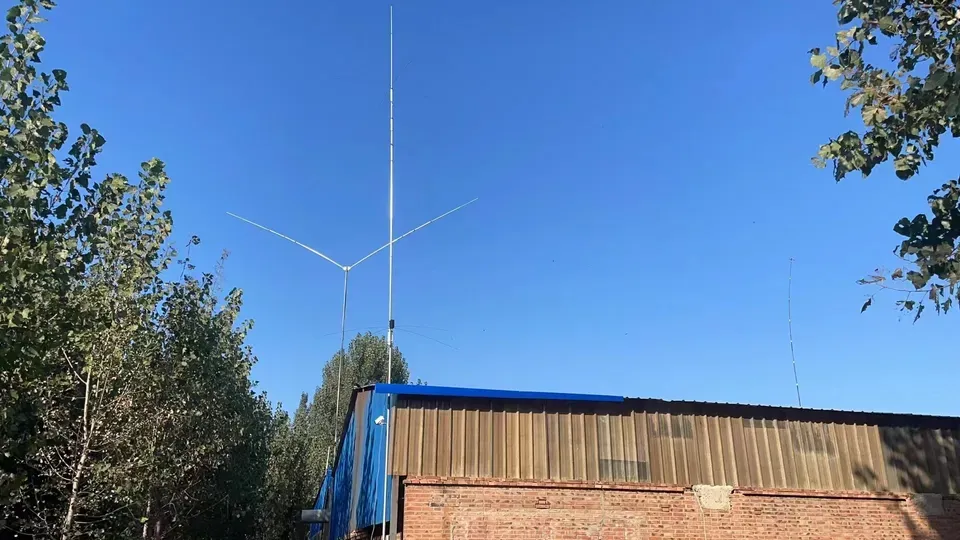
Send Inquiry
How to Choose the Right Radio Antenna?
Selecting the right radio antenna is a critical decision that can greatly impact your radio communication experience. Whether you're a ham radio enthusiast, a professional, or someone simply looking to improve your radio setup, the choice of antenna matters. But with the variety of options available, how do you decide which antenna is the best fit for your needs? In this comprehensive guide, we'll walk you through the essential considerations and steps to help you make an informed decision. With the support of RuiXue Technology and the high-quality Xiegu Ham Radio antenna, we'll explore the factors that will guide your choice.
Understanding Radio Antennas
Before diving into the selection process, it's crucial to understand the fundamentals of radio antennas. This knowledge will help you make informed choices.
What is a Radio Antenna?
A radio antenna is a device that sends or receives radio frequency (RF) signals. It's an integral part of any radio communication system, as it facilitates the transmission and reception of electromagnetic waves.
Types of Radio Antennas
There are various types of radio antennas, each designed for specific purposes. Common types include dipole antennas, Yagi antennas, and vertical antennas. Understanding the differences between these types is essential.
Determining Your Purpose
The first step in choosing the right radio antenna is defining your specific purpose. Your choice will vary depending on whether you're using it for amateur radio, professional applications, or emergency communication.
Ham Radio Antennas
If you're an amateur radio operator (ham), you may be seeking an antenna for hobbyist use. Factors to consider include frequency bands and available space.
Professional Use
For professionals, such as emergency responders, first responders, or in the commercial sector, reliable communication is essential. Your choice may involve high-gain antennas for long-range communication.
Frequency Bands
Radio communication operates across various frequency bands. Your antenna's design and compatibility will be influenced by the specific frequency or frequencies you intend to use.
Frequency Band Considerations
Identify the frequency bands you plan to work on, whether it's VHF, UHF, HF, or a combination. Different antennas are optimized for different bands.
Antenna Gain and Radiation Patterns
Antenna gain refers to its ability to focus energy in a particular direction. Understanding gain and radiation patterns is crucial, as they determine how well your antenna transmits and receives signals.
Gain and Directionality
High-gain antennas are directional, focusing their signal strength in a particular direction. This is ideal for long-range communication. Low-gain or omnidirectional antennas have a broader coverage area.
Installation and Mounting Considerations
The location and method of mounting your antenna are vital factors that can affect its performance. Installation should be well-planned and executed.
Antenna Height
Height plays a significant role in signal coverage. For fixed installations, consider mounting your antenna as high as practical to maximize its reach.
Grounding and Lightning Protection
Ensuring the safety of your equipment and the structure it's mounted on is essential. Proper grounding and lightning protection measures are a must.
Budget and Product Quality
Finally, consider your budget and the quality of the antenna. While it's tempting to opt for the least expensive option, investing in a high-quality antenna can provide better long-term results.
Balancing Budget and Quality
Evaluate your budget while keeping in mind the long-term benefits of a durable and reliable antenna. The Xiegu Ham Radio antenna from RuiXue Technology offers a great balance of quality and affordability.
Conclusion
Selecting the right radio antenna is a crucial decision that significantly impacts your radio communication experience. Whether you're a ham radio operator or a professional user, understanding the basics of radio antennas, defining your purpose, considering frequency bands, gain, installation, and budget are key steps in making an informed choice.
With the support of RuiXue Technology and products like the Xiegu Ham Radio antenna, you can trust in the quality and performance of your antenna. Remember, a well-chosen antenna can make all the difference in the clarity and reach of your radio communications. Make your selection wisely, and enjoy the enhanced radio experience that follows.

